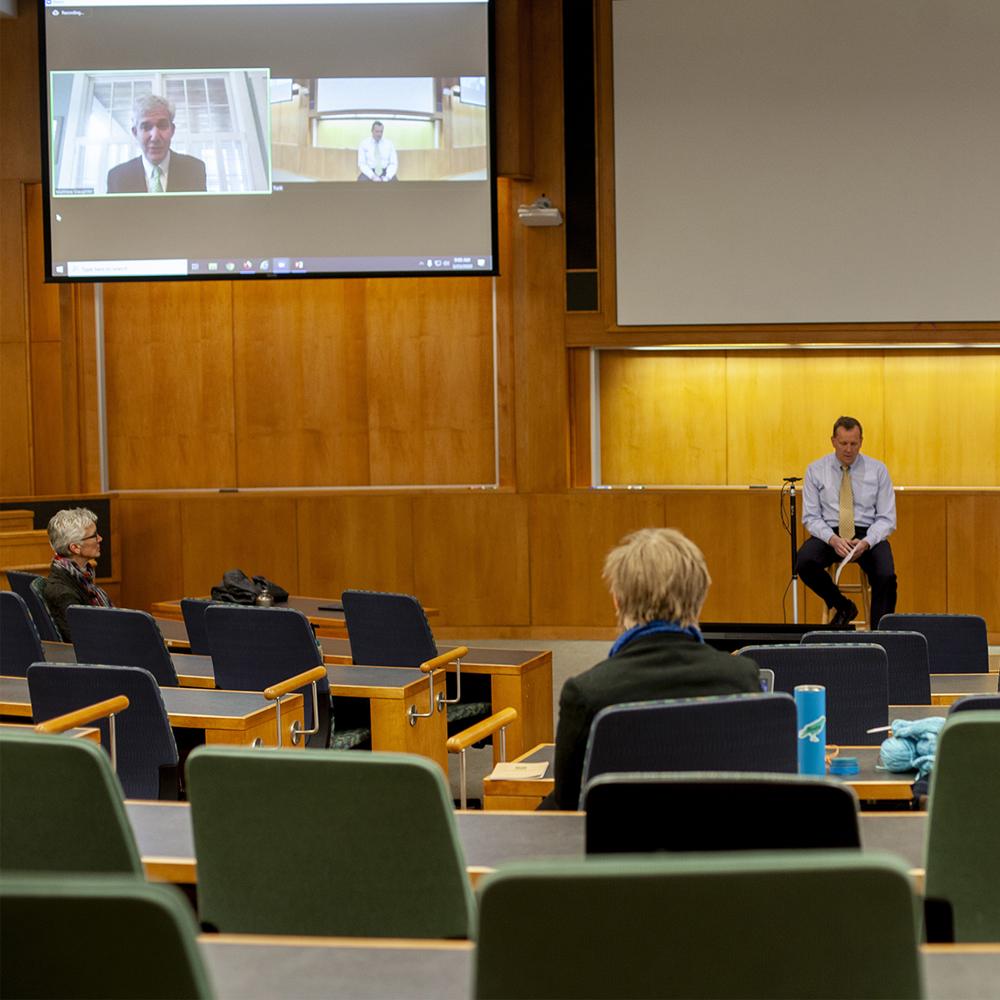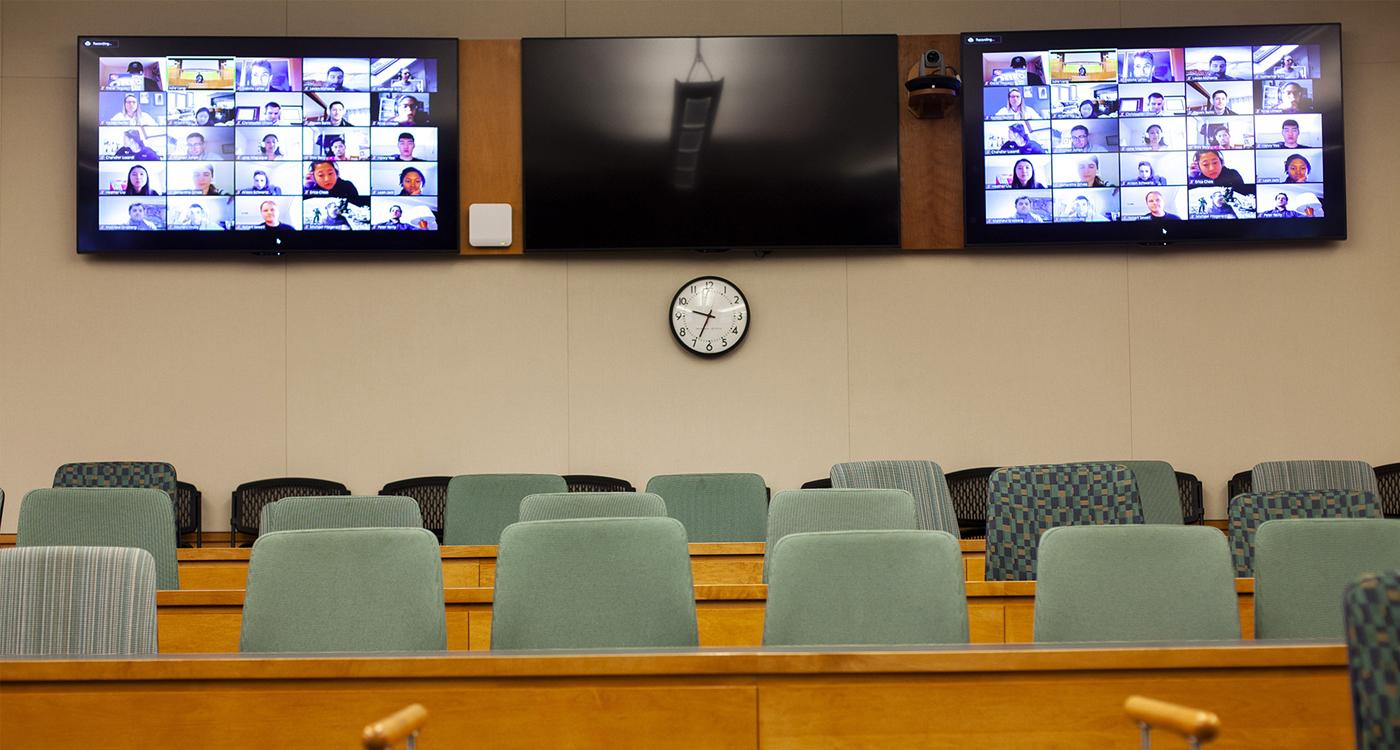As he does at the start of every spring term at Tuck, on Monday morning, Peter Golder, faculty director of TuckGO, addressed 57 teams of first-year students as they prepared to embark on a hallmark of the Tuck MBA: the First-Year Project (FYP).
There was one big difference with this year’s FYP launch, however: Golder, who is also a professor of marketing, addressed 292 students virtually via Zoom conferencing.
To safeguard the health of the community and the continuity of students’ education amidst the ongoing COVID-19 situation, Tuck, like many schools across the country, made the decision earlier this month to move all MBA core and elective courses to remote-only learning for the spring term. To the extent possible, the school is also doing the same for co-curricular offerings. The decision led Tuck to quickly pivot and identify new, engaging virtual methods for delivering coursework and co-curricular projects.

TuckGO faculty director Peter Golder and Dean Matthew J. Slaughter met with students on Zoom Monday morning to kick off the program.
“Everyone is committed to creating an educational experience for our students that is just as fruitful as if they were sitting in Hanover,” says Golder.
During launch day, student teams learned more about the scope of their projects, and met and networked with clients virtually via the Zoom interactive platform. A required course, the Tuck First-Year Project challenges students to apply what they’ve learned in the classroom to solve complex, strategic business challenges for clients—ranging from multinationals to nonprofits and early-stage startups. This year, students are working with clients from Under Armour, the International Center of Photography, and Parsley Health, to name a few.
With COVID-19 mitigation efforts continuing to impact both travel and business, students are not visiting client firms in person this spring. But that shouldn’t dramatically impact project deliverables, says Golder, as team and client meetings were often conducted remotely in the past. This spring’s move to a remote-only setup will also potentially allow more people on the client side to take part.
Everyone is committed to creating an educational experience for our students that is just as fruitful as if they were sitting in Hanover.
“All of the clients are committed to continuing with their projects. That’s a testament to the partnership we have with them, which we’re very grateful for,” he says. “We’re trying to keep the experience the same as possible for all involved.”
Kaitlin Sennatt T’17, general manager of virtual operations at Parsley Health, has already been impressed with the level of engagement and thoughtfulness from Parsley’s dedicated student team.
“They are already asking all the right questions on day one,” Sennatt says. “I’ve been particularly grateful for a flexible and smart group, who have been willing to adapt to our changing business needs—as a health care company dealing directly with the situation at hand.”

Meanwhile, the Tuck spring term kicked off Tuesday morning on the Zoom platform after several successful test sessions with students, faculty, and AV staff. Tuck’s collaboration with Dartmouth on its Master of Health Care Delivery Science (MHCDS), which blends online learning with on-campus sessions, further allowed the school to adapt quickly to remote-only learning for the spring term.
“We’ve leveraged online learning expertise across the Dartmouth community,” says Joe Hall senior associate dean for teaching and learning and the David T. McLaughlin D’54, T’55 Clinical Professor. “MHCDS, for example, has been delivering a blend of remote learning to its students for over nine years. They’ve briefed us on best practices and walked us through the technology, which has been a game changer.”

